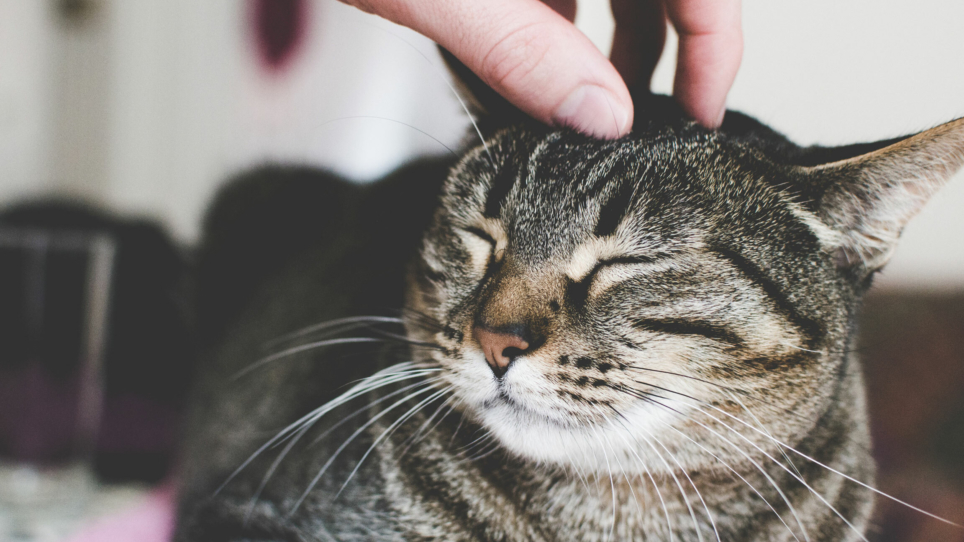Food and water
Your kitty needs a healthy, nutritionally balanced diet and access to fresh, clean water.
Feeding your cat good quality dry kibble and wet food twice to three times each day will help keep them healthy. Follow the serving sizes for your cat's weight and age recommended by the food brand or your vet. We recommend feeding your cat Purina.
House cats are happy cats
Keeping your cat in your home or contained inside your property is the best way to keep them safe, healthy and happy.
Microchipping and ID
Good news – because you adopted from AWL, your cat already has a microchip. How great is that?
Now, all you need to do is keep your pet's microchip details up-to-date if your address or contact details change.
It's also a great idea to put an engraved tag on your cat's breakaway collar. That way, if your kitty escapes, anyone who finds them can quickly contact you.
Vaccinations
Your cat needs an annual F3 vaccination to protect them against dangerous viruses that could make them very sick.
Kittens need their initial vaccination at eight weeks, another at 12 weeks and a final booster at 16 weeks old.
Your kitty's vaccination needs might vary depending on their age and medical history, too. So, it's best to discuss this with your vet.
Fleas
Flea prevention is the best form of control. Untreated flea infestations can cause ongoing health issues for your cat.
Contact your vet for prevention and treatment options. Ask your vet about some of the 'spot-on' products that cover worms and fleas in one.
Use high-quality flea treatments recommended by your vet and avoid supermarket brands as they're less safe or effective.
Worming
Remember to worm your adult cat every three months using your vet's recommended treatment options. Kittens may need treatment more often – chat with your vet.
Follow the dose directions on the packet according to your cat's weight and treat all of your animals simultaneously.
Toileting
Set your cat's litter tray up in a safe, private spot away from their food, water and busy areas. Generally, your cats will need one litter tray each, plus one extra, just in case.
Keep the trays clean and use non-clumping, undeodorised litter – otherwise, your furry friend may toilet elsewhere.
Vet care
Your kitty will need yearly check-ups with your local vet to make sure they're in good health. If you're cat's older or has some existing health concerns, check-ups might need to be more regular.
Contact your vet to work out a plan for your pet.
Teeth
Your cat needs clean, healthy teeth. Some commercial dry foods reduce dental plaque, and you can get specialised dental care products from your vet.
Giving large chunks of meat will help your cat's dental health, and they'll enjoy chewing it. Only offer pieces of fresh meat that are fit for human consumption.
Grooming
A matted coat is painful for your cat. So, they'll need regular brushing and grooming.
If your cat has medium to long hair, they'll need daily grooming to keep their fur knot-free. Otherwise, a short coat will need occasional brushing and more regularly through shedding seasons.
Lifestyle
Keeping your cat inside or secure in a cat-proof outside area is the best way to keep them safe.
Your cat can live a happy and enriched life indoors - you'll just need to make it fun.
Give your kitty scratching poles, indoor cat-safe plants, access to fresh air and sun, food-dispensing puzzle toys, high hiding spots, cubby houses and fun toys.
Cat carrier
From time-to-time, you'll need to transport your cat in a cat carrier.
Get your cat used to its carrier early on, so visits to the vet aren't stressful for you both.
Leave the cat carrier out around the house, with treats, toys and a bed inside. This will help your cat to associate the carrier with positive experiences.
